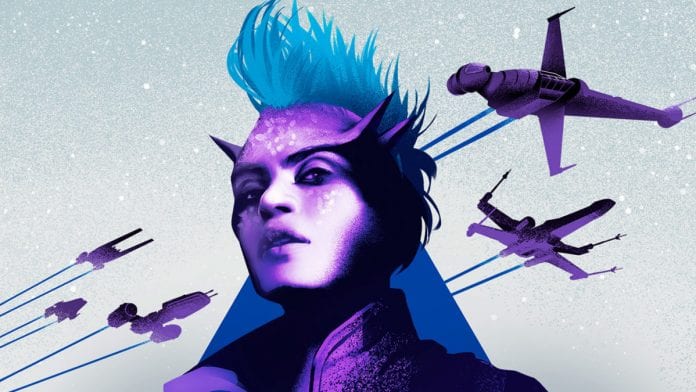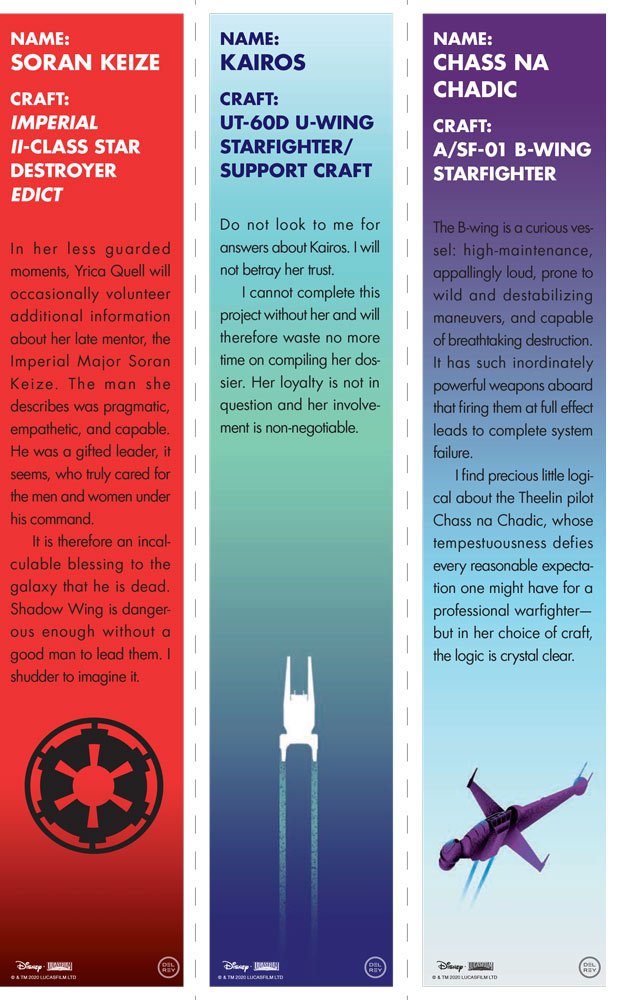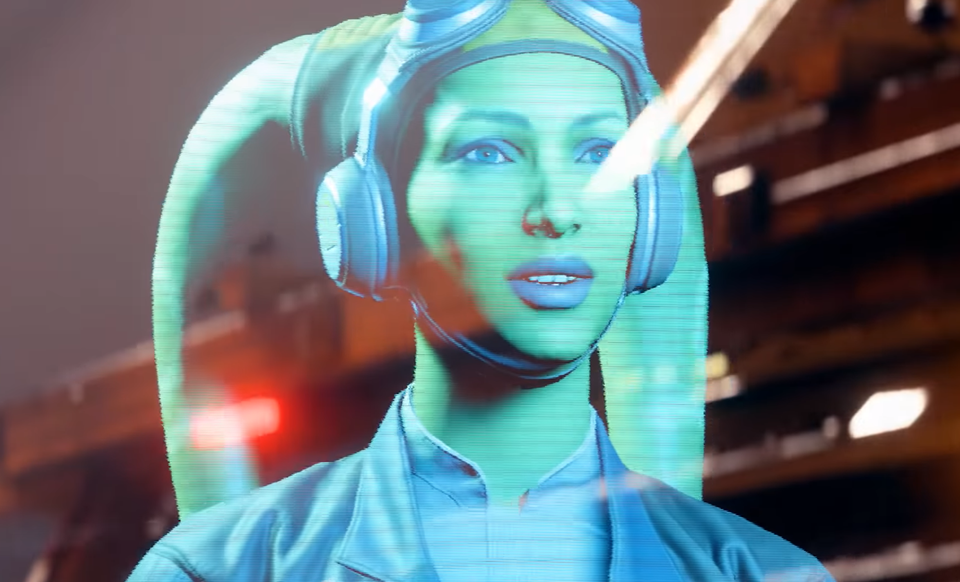“Being on the winning side of a war meant fighting for stupid things”
-Chass na Chadic
Alexander Freed is back with Star Wars: Shadow Fall, the second novel in the Alphabet Squadron trilogy.
Here’s the publisher’s summary…
News of the New Republic’s victory still reverberates through the galaxy. In its wake, the capital ships of the newly legitimized galactic government journey to the farthest stars, seeking out and crushing the remnants of imperial tyranny. But some old ghosts are harder to banish than others. And none are more dangerous than Shadow Wing.
Yrica Quell’s ragtag Alphabet Squadron still leads the search for Shadow Wing, but they’re no closer to their goal—and the pressure to find their quarry before it’s too late has begun to shake them apart. Determined to finish the fight once and for all, Quell works with New Republic Intelligence’s contentious Caern Adan and the legendary General Hera Syndulla to prepare the riskiest gambit of her starfighting career—a trap for Shadow Wing that could finish the chase once and for all.
But in the darkness, their enemy has evolved. Soran Keize, last of the Imperial aces, has stepped into the power vacuum at the head of Shadow Wing, reinvigorating the faltering unit in their hour of need. Once adrift in the aftershocks of the war, Keize has found meaning again, leading the lost soldiers of his unit through to safety. The only thing standing in his way? The most mismatched squadron in the New Republic Navy, led by his former mentee: the traitor Yrica Quell.
Whoever wrote this synopsis deserves a raise for even attempting to recapitulate this story, it’s that intricate, it’s that dense. In fact, it’s so unyielding in its elucidation, that I’m not entirely sure this book will appeal to those looking for a good time. For my money, it’s an achievement in every sense of the word and is one of the best novels of the new canon era. And I don’t say that flippantly or without good cause, but we’ll get into that later.
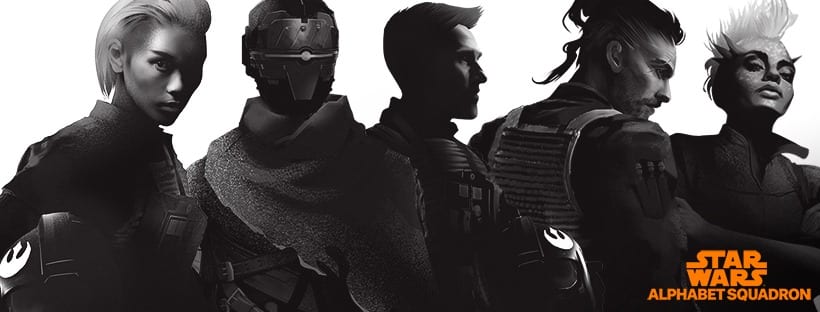
HERE’S YOUR SPOILER WARNING!!!
Like the summary says, Shadow Wing remains elusive not because of cunning or stealth, but because of disarray. When Alphabet Y-Wing pilot Nath Tensent murdered Colonel Shakara Nuress, aka “Grandmother”, he effectively cut off the head of the snake, creating a leadership void in the 204th. And as the synopsis states, Major Soran Keize has returned from self-exile to fill that vacancy with vigor. What he finds is a TIE wing bent but not entirely broken, and he takes it upon himself to rebuild the once unassailable 204th to its former glory, with a renewed polestar.
This is all unbeknownst to General Hera Syndulla, Caern Adan, Yrica Quell, and the rest who have somewhat settled into a rhythm, engaging in smaller less-meaningful reconnaissance missions. But with Shadow Wing still on their frontal lobes and the convoluted outcome of Pandem Nai still germane, the “New Republic Intelligence group on the 204th Imperial Fighter Wing” are looking to set a trap in the Cerberon System.
Not much time has passed since the first novel, so the state of the galaxy remains in flux as the transition to a new ruling body is proving difficult. It’s a messy, convoluted, chaotic place that has yet to see the neither the benefits of a New Republic doctrine, or the complete erasure of the Empire.
The business of “taking over” is ugly and a bit of a false flag. The romanticism of the rebellion is gone, the legend of Luke Skywalker is fading, and what’s cultivating is starvation, desperation, and hopelessness. Fearful of history repeating itself and stretched too thin, the New Republic seems unable and unwilling to embrace a centrist government, creating vacuums of discontent.
Indeed, Alexander has crafted characters that perfectly match the time in which they exist, including Soran Keize, and Shadow Fall is the gold standard for what the Galaxy looks like post Imperial rule.
“…a black hole like a burning eye, its ebony pupil surrounded by an iris of fiery debris.”
This all takes place in and around the Cerberon System which, like the characters in this book, is slowly being devoured. Only these moons, planets, and asteroids biggest foe isn’t Shadow Wing, it’s a singularity, a black hole, by “…forces more powerful than any Imperial death machine.”
Alexander uses this singularity as not only a backdrop to a vengeful universe, course correcting itself from the damage inflicted by too many years of war, but as a metaphor for our hero’s states of mind. Hero’s like Chass na Chadic, whose emotional vitality is always in flux, and whose stirred-up energy has sent her into a tailspin, literally. Because deep inside each character is a concentration of dense energy which is unique to their emotional traumas.
So, like a black hole, these negative emotions, a result of past occurrences, takes its toll on them, eating away at their very beings. It’s deep emotional stuff and really pushes the limits of our protagonists mostly feeble bodies and minds.
Freed seems to really have a good understanding of psychological precepts to pull off some of these passages. These self-evident feelings of inevitability, time, and inescapable truths permeate throughout this book and Freed scatters reminders that the “burning eye” is always there, always watching.
His use of language transcends casual thought, even among the greatest of Star Wars novels, subjectively helping us understand what reality is and how we might perceive it. Some will think of it as a “word salad” or a chore to get through, indeed Alexander loves attributive adjectives when describing people, and adjective modifiers when describing situations. This can eat away at a word count and if you’re not careful, cause a burn out.
But for me, there is instead a power within the text that can reach out to us without any prior knowledge playing a part. After all, we process language differently, and thanks to pre-operational thought we don’t need to understand the words to appreciate and connect to the story. Indeed, there’s a prescience that occurs when you read a Freed novel, almost a type of non-linear orthography.
The Sapir-Whorf hypothesis or “linguistic relativity” states that if you learn a new language, your brain gets rewired, and that’s what I feel like I’m experiencing reading Shadow Fall, and to a slightly lesser degree, Alphabet Squadron. The suitably titled Chapter 18, “Only What You Take With You” is the perfect example of that, but first a little pretext.
During the siege on Troithe, the capital planet in the Cerberon System, Kairos gets gravely injured when she courageously, but foolishly, flies her U-Wing into harm’s way, saving a squadron of ground troops. Quell is the first to find her and signals Adan, thinking he would want to know. He frantically scrambles, arranging to get her the best possible care, and rendezvous with the medical teams. Not thinking clearly, he lets his guard down and is kidnapped by some rogue Imperials.
While Quell, Nath, and Ito go off to find him, and Kairos is being loading onto the Bright Vigil, bound for Chandrila, Wyl Lark receives a coded message…
TO BE DISTRIBUTED IN THE EVENT OF THE DEATH OR DISAPPEARNCE OF CAERN ADAN, CONCERNING NEW REPUBLIC INTELLIGENCE ASSET YRICA QUELL.
He reads on, and Yrica Quell’s life is about to change, and not for the better as her nefarious history, specifically her actions on Nacronis, are there for the New Republic to see. They confront her when she returns with Adan, and if not for a surprise attack from Soran Keize and his newly equipped 204th, she would have found herself locked up for war crimes.
The Alphabets spring into action leaving a despondent and overwhelmed Yrica behind on the Lodestar, feeling very alone in a big galaxy. Guilt, embarrassment, and culpability take effect and even though they may not want her help anymore, she’s going to give it. She’s reluctantly joined by Adan and Ito as they commandeer a freighter, entering the fray. Because of Yrica, the battle in orbit shifts in favor of the New Republic, although her now former squad mates were none the wiser.
This valiant effort to make amends ends up costing Yrica however as her actions resulted in irreparable damage to their shuttle, causing them to crash on a nearby planetoid. While there, investigating some strange power readings, they would stumble across something Sith related that has been hidden for quite some time, possibly an Operation Cinder survivor.
Here’s an example of where Freed could’ve taken the easy way out, simply had them break into the Sith tower, figure out the Emperor’s long-term plans, then escape with that information, back to Syndulla and the fleet. Instead, he uses the planetoid and Sith monument to suffer Yrica though some form of expiatory purification, or purgatory.
He also commits the sin of killing two of my favorite characters, Adan and IT-O, an incredibly brave but important decision that most other authors would have NEVER done. And I can’t help but wonder, did Yrica die there as well? Did this ghost monument extract life and then giveth? These were Yrica’s closest allies, only allies really, even choosing to consider them friends. By killing them, Freed cuts the heart out of Quell and further deepens the divide between her and her former squad.
Short of everlasting damnation in a non-specific sense, the planetoid offers up both a mental and emotional set of conditions causing extreme suffering for Yrica, reparations for her ticket off the rock. This occurs through a sort of Lazarus Phenomenon where she must enter a half-life state and confront her past, her fears. The chapter title of course harkens back to The Empire Strikes Back, and Yoda’s calamitous counsel to Luke prior to entering the Dark Side cave on Dagobah.
The two occasions mirror each other in the sense that both Luke and Yrica must confront their fears before they can become resolute, albeit with different results. Both the cave and this tower feed on emotion and offer would-be caller’s visions of their past, future, or possible futures.
This psychosomatic key unlocks the doors to the Sith tower, giving her access to a ship, granting her freedom. And with nothing to go back to, and a broken but clear mind, she makes the now easy decision to mutilate her arm, removing her Alphabet tattoo, and return to Shadow Wing, return to Soran Keize.
“She felt air against her skin. Her forearm wrappings were scorched. She had broken her last vow.”
A few of my favorite characters also happen to be connected in the most profound way, even apart from Alphabet Squadron. Adan and Kairos were presented to us in the first novel as having been together for quite some time. The details were murky, but it was presumable they had suffered through some trauma together at the hands of the Empire and lived to fight another day.
Here, we get some details in what was for me the most thoughtful section of the book, Chapter 15 “Fantasies of Grander Days”, where a slowly dying Adan recalls his imprisonment, interrogation/torture, and introduction to Kairos and Ito. It was at an Imperial transitory holding facility somewhere in the Colonies but Freed doesn’t get any more specific than that, it’s not important and would miss the point.
Like Adan, Kairos suffered greatly at the hands of these Imperial monsters, as he recalls seeing her painful transformation, without ever revealing her species. We also find out about Ver Iflan, the original third member of their group but who seemingly didn’t survive. But Iflan had left them with the most wonderful of gifts, a reprogrammed IT-O torture droid.
Speaking of “Ito”, the damage incurred during the crash was extremely detrimental to his/her systems including memory banks. The glitches started shortly after being found and only got worse until Ito reverts to whoever it was before meeting Caern, back to an interrogation/torture droid. Unfeeling, unregretful, unmerciful. I cried during this stage of progressive dementia, this digital deterioration; with Ito acutely aware of this calamity he/she is in, losing its very being.
As for Adan and Kairos, she was on his mind till the very end and I can’t help but feel her injuries, healing, and subsequent “unmasking” are connected to his passing. With Adan and Ito gone, it’s likely we’ve seen the end of her vows as well, so look for her to be more vocal going forward, even though her understanding of basic is very limited.
And that’s another one of those little bombshells, a tiny detail that most will miss depending on your opinion of these characters. But for me, it makes accessible beautiful moments like the normally impatient Adan taking Kairos aside and thoughtfully explain the fundamentals of the plan, after the others had left. These two had formed an accord through pain, and each given their pound of flesh so that they may meet.
Adan is a big hit for me personally, he’s such a complicated and essential character but his death frees up not only Kairos, but Yrica as well, who both have lost their most important connection to Alphabet Squadron, and the New Republic. I can’t imagine a more consequential death to the narrative but with death comes peace, and Adan has fought more than his fair share of demons, so while his passing is forlorn, it’s also a heartfelt “ir con Dios mi amigo”.
“THE FORCE IS LIFE, and FELLOWSHIP IS CREATION”
Chass na Chadic, who is featured on the cover, experiences a much different journey than her Alphabet teammates. Religion, faith, conviction, guilt, all play a heavy role in Shadow Fall and Chass experiences the most direct and obvious correlation of those.
When her B-Wing is scuttled during battle and separated from the fleet, it isn’t long before she gets an alarm, indicating a malfunctioning oxygen gauge. Deciding a spacewalk is necessary, she slaps on a re-breather and pops the hatch, heading for the O2 tanks, exposing herself to the coldness of open space.
Things go from bad to worse when a small spark causes her to instinctively push off, with inertia separating her from her beloved vessel. And like Chuck Noland and Wilson the volleyball in “Cast Away”, the distance becomes too much to overcome. As she slowly succumbs to oxygen deprivation, she is left alone with her thoughts, and regrets.
Her savior comes in the form of Gruyver, a disciple of The Children of the Empty Sun, a sect of Force acolytes living on nearby Catadra and who are led by the enigmatic Let’ij. In his solar ship the “Gruyver’s Skiff”, they found her just in time, before she succumbed to the airless vacuum of space. They take her to their sect, with the hopes of indoctrinating her into their “cult”.
She assumes the identity of Maya Hallick and bides her time with the group, looking for a means of escape, even though it’s unclear if she’s a prisoner or not. The group, while maintaining a pacifistic front, is tougher than they appear with ties to smuggling rings and a weapons cache.
While there, she subjects herself to their day to daily affirmations and rituals, most of which amount to an undying desire to look within oneself and find peace. If you know Chass at all, then you know this mumbo jumbo doesn’t wear well, and she rejects their notions, aggressively, even maliciously.
She escapes with the help of a once thought dead Shadow Wing pilot name Palal Seedia, herself a detainee, and someone who had earned the respect of Soran Keize. The only thing they share is a willingness to leave this “cult”, but with Chass in need of a ship, and Seedia injured, they must form a partnership.
In the end, we are left with an understanding that her time with The Children of the Empty Sun wasn’t completely unfruitful, as the seeds have been planted, and look to take root. You can’t run from what’s inside your head, and sometimes the only answer is to embrace your thoughts completely, rather than struggle with your own inner core. And the key to unlocking this varies person to person, what work’s for Chass won’t work for Yrica, so Alexander crafts moments of awakening tailored to each character, so that they may experience abreaction on their own terms.
Do I think Chass will leave the New Republic and join the group full-time? No. She’s dedicated herself to seeing this war through to the end, after that, who knows. But Chass will face the same question they all will after their tour of duty is complete. Who are they if not fighting the Empire, or the 204th? What’s their purpose in life if not revenge?
Speaking of revenge, Wyl and Nath have perhaps the most straightforward turn in terms of character development, as it relates to the ongoing war. Wyl is very much coming into his own, as a pilot, as a leader, and as a person. While he very much still identifies with his Polyneus background, he’s starting to get further and further away from his promised return date.
He’s less concerned these days with trying to win Chass’s approval (or forgiveness), as they have healed somewhat since we last saw them, developing a healthy mutual respect. No, he’s more interested in holding on to his humanity, his compassion, as he faces overwhelming obstinance and indifference.
These traits would serve him better when fighting the “enemy” but Wyl isn’t built that way, he isn’t built like his current mentor and proverbial big brother, Nath. Those lines are blurred for Wyl, who still counts “Blink” as a reliable aide-mémoire, and that there are good folks on both sides of the battle.
These two heroes, and they are heroes, have kept the forces at bay on Troithe while Syndulla is absent for a good chunk of time, supporting Vanguard Squadron in Bormea. Her absence of course from a narrative standpoint, opens up the leadership hole which Wyl is then forced to fill, in fact, if so many lives weren’t at stake, I’d say this was her way of testing Wyl’s resolve, looking to ignite that spark.
They have earned the respect of their peers and are rightfully celebrated for it. Where Nath embraces celebrity wherever and whenever he can get it, Wyl, every the dutiful one, would rather take a shower and nap.
But Nath is teaching him that sometimes it’s about more than accepting what comes your way, it’s about forming relationships. Making connections with the people whose butts you just saved, and in turn, will save yours. Nath is dealing with his own identity crisis, having had his fill of revenge, and no longer in it for the credits, he’s developing character, becoming an honorable person. And he’s not sure if it’s a suit that fits well yet, he’s working on it, but he’s sure about one thing, he’s found a kinship with Wyl, and he won’t ever let him down.
They both had great turns this round and while trying to find a reason not to fight, wound up finding only reasons to do so. This is low hanging fruit for Freed having written Battlefront: Twilight Company and Rogue One, and he nails it. We get up close and personal with the Sixty-First Mobile Infantry, which comes with its own set of characters, Sergeant Carver, Sergeant Vitale, Gorgeous Su, and Denish Wraive to name a few.
I would put both Wyl and Nath on the next cover if I was in charge of those decisions. And speaking of covers, there’s an obvious spoiler on Shadow Fall’s front, should you be looking for those types of things.
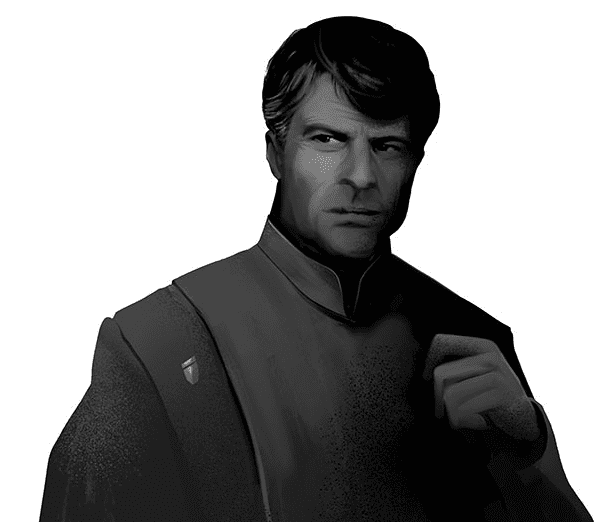
“I would be a miser to refuse to give what I can give freely.”
-Soran Keize
You could never accuse Soran Keize of blind devotion nor is he delusional about the current state of things. He’s a realist, and as such, understands that the Empire as they knew it was gone and that any future he or fellow Imperialists could eek out would be hard earned, if not impossible.
But he didn’t rebuild the 204th and bring them to Cerberon because he’s a patriot, he did it for revenge. Revenge against Hera Syndulla and the loss of Imperial life from her hand at Pandem Nai. But, his actions, particularly the critical errors, didn’t go unnoticed as he crosses paths with Grand Admiral Rae Sloane, the Empire’s current highest-ranking officer, and de facto leader of what was left of the Imperial war machine.
Operating rogue has its limitations, the battle on Troithe and the surrounding system proved that, so he’s forced to reconnect with Sloane and an Empire he’s not particular fond of. And what’s not helping is the Messenger; yes that Messenger, lurking like a noose around Soran’s neck, tightening slowly. It’s a constant and nagging reminder that the past, present, and future are connected in ways he may not even fully understand, and that ultimately, his path might not be of his own volition.
Soran’s story provides us with one of the books best new characters in Troithe’s Acting Governor and Imperial loyalist, Fara Yadeez. She replaced Governor Hastemoor who was killed when the New Republic attacked the capital, part of their strategy to lure the 204th out of hiding.
She’s smart, loyal, and courageous but unfortunately for Soran, a constant reminder of an illusion that once was. You see, she’s holding out hope that the Empire, and Troithe, may return to its former glory, and she’s taking Soran and the 204th’s presence as an indication of reclamation. The only thing Soran has any intention of saving is himself and the 204th, but he’s taken with Yadeez, and plays along. That is until she’s more or less figured it out, but still in the end, fights the good fight.
So, the book ends with both sides suffering loses, big ones in fact. And we’re learning that granting someone authority doesn’t automatically bestow them with the attributes of leadership, those are most often earned. Such is the case with both Soran and Wyl, who are finding out that Hera Syndulla and Rae Sloane make it look easy, but nevertheless have a job to do. Leadership and drive come much more easily to Soran than it does to Wyl, but the difference maker in the end, which is always the case, is friendships.
In short, Wyl has friends and Soran doesn’t, so in a war fought, won, and lost in the margins, it’s who’s got your back that often determines the outcome.
But this has always been the case when comparing the two sides and their modus operandi. The Empire relies on discipline and individual achievement, just look at their TIE formations. Whereas the Rebels, now the New Republic, embrace a there’s a no “I” in team philosophy, it’s no different here. Basically, what I’m saying is, my money is on the remaining Alphabets as long as they stick together.
What’s amazing is that as much as I’ve blathered on, this book is SO much more than that, giving us new characters, old characters, and dishing up relevance left and right. I haven’t even mentioned any of the Easter Eggs which are well-meaning and well-placed; pulling you back in each time you lose sight of the book’s directing principle. And the format, gosh, the chapter breaks are so perfectly edited that it feels like the best example of a play or episodic television. This book reads very, very well.
I’ll be talking to the book’s editor, Ms. Elizabeth Schaefer, so I look forward to finding out just how thorny a Freed novel is to navigate. Giving the fact that Alexander is famous for meticulous and lengthy outlines, I wouldn’t be surprised to hear the process is relative.
And speaking of chapters, the book is divided into two parts and twenty-two chapters, each one with a name, as was Alphabet Squadron. I love this aspect, naming chapters, and it’s rare, in fact the only book that comes to mind that did the same is James Luceno’s “Tarkin” novel. While less common nowadays, the truth is names have power, Tolkien knew it, and so does Freed.
Alexander loves painting his picture and making his point as clear and concise as possible. Even when describing a common Star Wars axiom such as an AT-AT, he can’t help himself…
“…titanic metal fiend striding toward him on four spindly legs. Its arched back led to an insectoid head bearing twitching gun barrels in place of mandibles, and its plating was scored by blaster impacts and coated in dust and ash”
Of course, he could’ve just said AT-AT, or Imperial Walker, and we all would’ve been just fine with that, but he couldn’t help himself, and the novel is better for it.
Look, I’ll break my “no-rating” tradition and say that this is clearly a 10/10 for me. It’s superior to Alphabet Squadron which, if not for Claudia Gray writing her greatest Star Wars book to date, would’ve topped my 2019 list. And I understand that Freed’s writing isn’t for everyone, and the complete lack of lightsabers and Skywalker’s will disenfranchise a small percentage, but I can’t think of a more perfect writer for this point in the timeline.
Because he’s not interested in piggybacking, he wants this story and its characters to stand on their own. He talks of Chancellor Mothma, but uses her name sparingly, the word “Skywalker” appears only twice, and in the same sentence. No mention of Han Solo, Chewbacca, Lando Calrissian, or Leia Organa. My points is, by allowing his characters room to breathe, he’s done them no disservice by neglecting the heroes of the rebellion. It’s a brave omission and kudos to him, Dey Rey, and Lucasfilm for allowing this story to be told.
Listen, to say anymore would be saying too much, so I’ll leave you with this, a Corellian traders’ song, sung by Soran Kieze…
Tack into the danger, boys
Onward thought the night
Upon the morrow we’ll hoist our flag
And set Queen Gann alight
Star Wars: Shadow Fall is available now, you can order a copy by clicking HERE!

